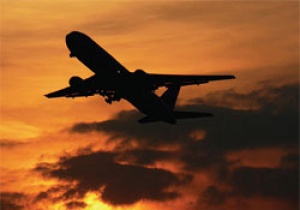Airline chiefs call for Air Passenger Duty reversal

In a rare moment of unity in this most competitive of industries, leaders from four major UK-based carriers have called on the government to repeal Air Passenger Duty (APD) ahead of airlines’ entry into the new European Union-backed Emissions Trading Scheme (ETS).
APD was initially conceived as a ‘green tax’, designed to force airlines to pay for the externalities caused to the environment by commercial aviation.
However, with airlines now forced to pay for carbon emissions under the new ETS scheme, the “injustice” of APD has been exposed, argue airline leaders.
Carolyn McCall from easyJet, Willie Walsh from IAG, Michael O’Leary from Ryanair and Steve Ridgway from Virgin Atlantic jointly said: “Airlines’ entry into the EU emissions trading scheme on January 1st brings the injustice of APD into even sharper relief.
“APD was initially conceived as a green tax, and the Treasury still maintains it brings ‘environmental benefits’.
“The reality is that no APD revenue has ever been spent on environmental benefit.
“In contrast, ETS means that all future growth in European aviation will be carbon-neutral, and provides an incentive for further reductions in emissions.”
Government figures show UK aviation was paying enough to cover its carbon costs in full in 2008, since when APD has more than doubled on many routes, the group argued.
Under ETS, UK airlines face paying €400 million a year by 2020.
Annual revenue from APD stands at £2.5 million, with the government stating it expects this figure to rise to £3.6 billion by 2016.
“We are already tackling our climate change impacts and ETS, while far from perfect, goes with the grain of improving environmental performance,” added McCall et al.
“APD actually makes it more difficult for airlines to invest in carbon-reducing technology.
“APD is a self-defeating tax that pays for no environmental benefits, chokes off economic activity and cuts jobs.
“Only the UK holds back its own economic recovery with a tax of this nature.
“APD must go,” they concluded.

